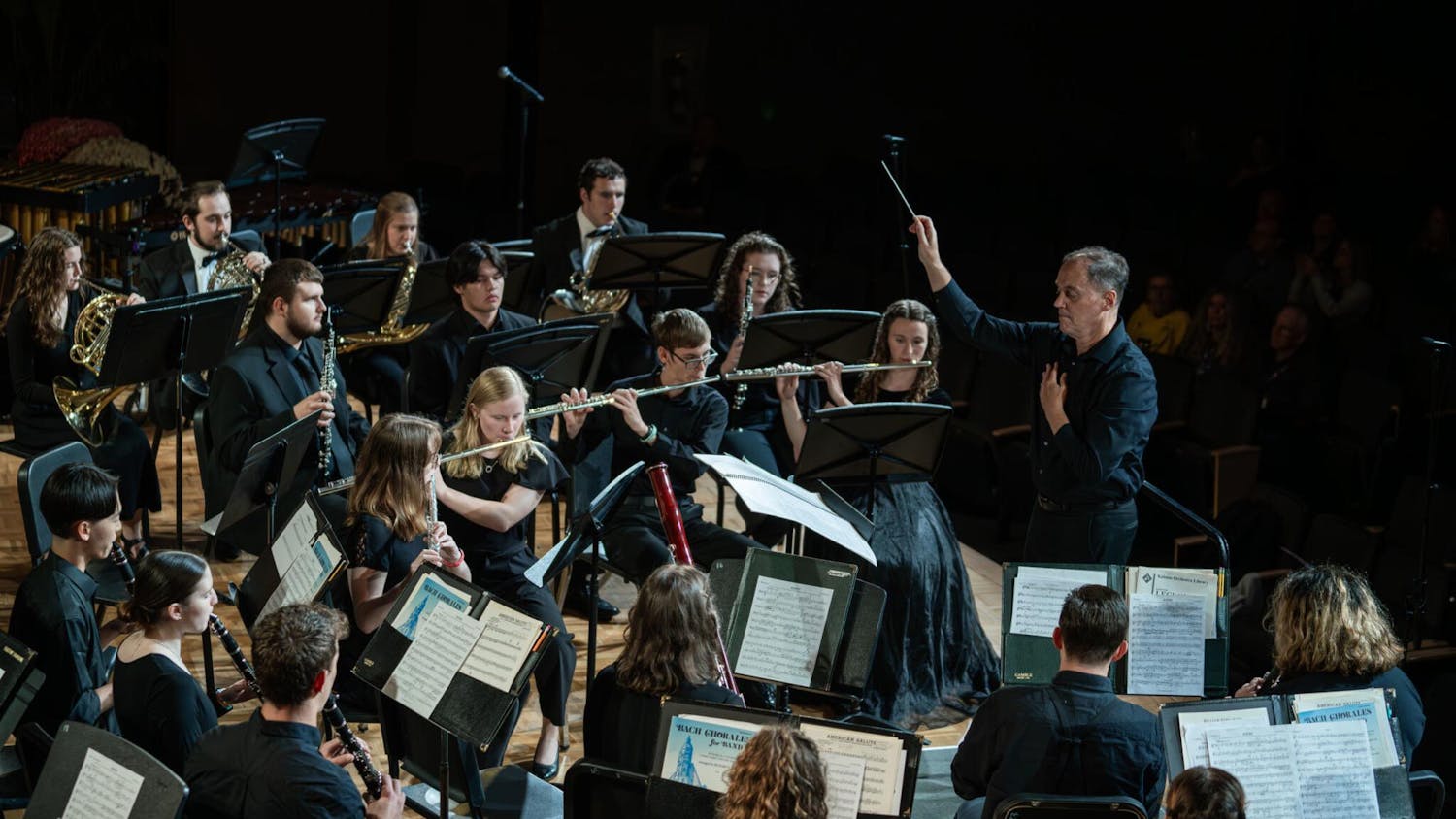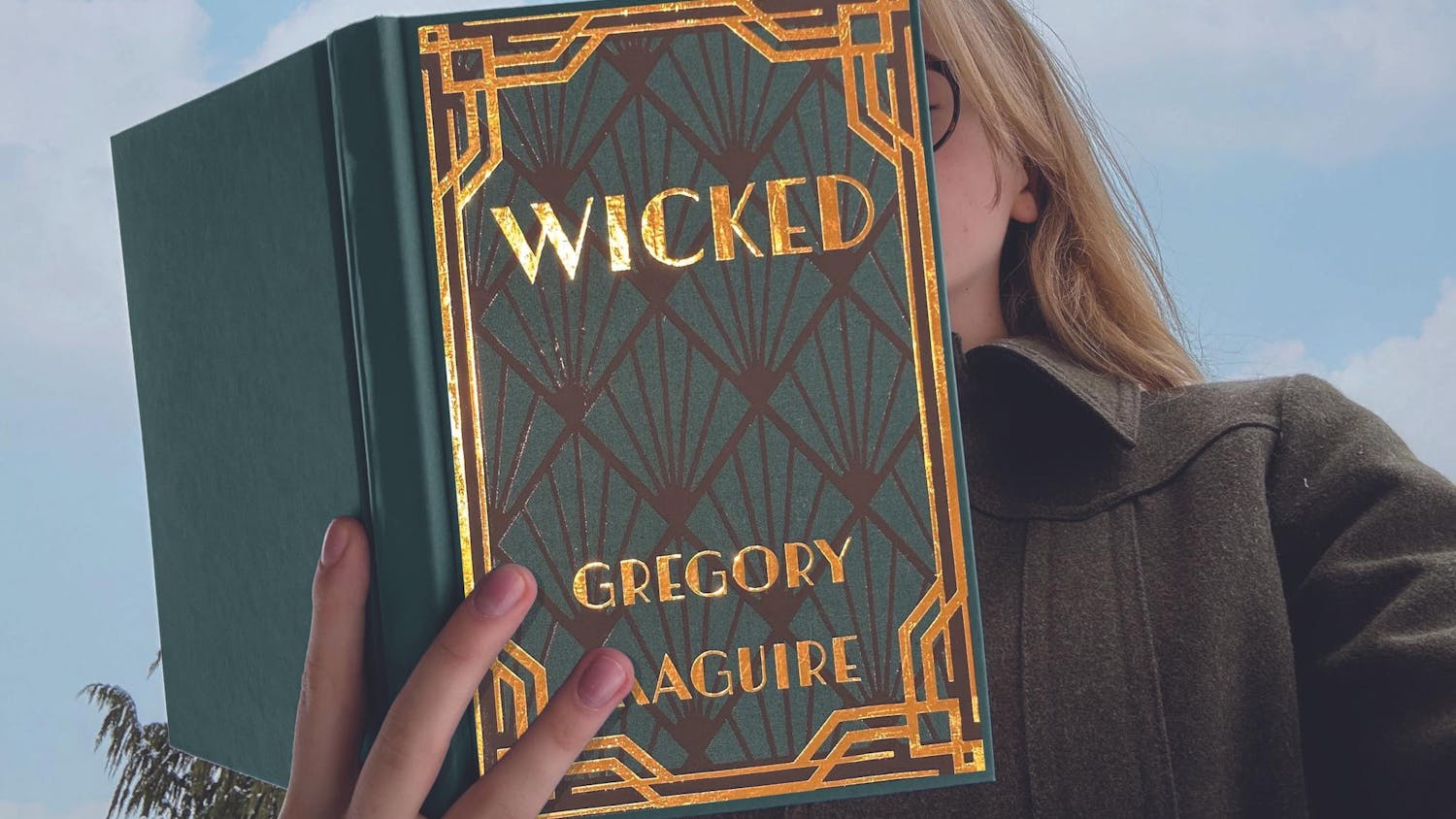Selections of the most popular Christmas classics known to choral and orchestral music will fill Rediger Auditorium on Nov. 9 at 2:30 p.m.
And it all started at the Indiana Music Educators Conference in July.
“It has stuff about our whole music department,” Marcus Haynes, a senior music education major, said. “I was like, some people did this research project, some people stayed over the summer to write music. Wait, why haven't we done so?”
Haynes and senior music education major Danielle Lilly received Faculty Mentored Undergraduate Scholarship funding from Taylor and have been working on their FMUS 2005 research project, “Authentic conducting experiences on the development of Pedagogical Content Skill Knowledge Conducting in pre-service music teachers,” since the summer of 2025.
During the summer, Haynes and Lilly conducted literature reviews and developed the methodology for their research project under the guidance of their mentor, Eva Kwan, coordinator of the music education program. As the culmination of their research, they chose movements from Handel’s “Messiah” as the repertoire.
A smaller orchestra, no entrance fee and a shorter time frame than most “Messiah” performances await each audience member as “Hallelujah Chorus,” “Unto Us a Child is Born” and many other movements find their place on Rediger Auditorium’s stage.
Three soloists, Soprano Loralie Songer, an adjunct instructor of voice, Alto Cynthia Smith, a Ball State assistant teaching professor of vocal music, and Baritone Conor Angell, the department co-chair and professor of music, lyric theatre and voice, will take the stage accompanied by a string section, wind section, organ and about 20 vocalists.
“Marcus and I went through and we listened to it, and we tried to grab enough pieces that the storyline from beginning to end is still heard, while recognizing we're trying to put this concert together within as few rehearsals as possible, as little rehearsal as possible,” Lilly said.
Combining Lilly’s instrumental focus and Haynes’ choral major, they decided “Messiah’s” classic work would be easily digestible for most people while still posing a slight challenge for their conducting experience.
The project consists of two parts that will be compiled into a final presented paper with the hope of being presented at the 37th International Society for Music Education Pre-Conference, in Montréal, Canada, in July of 2026. With proposals submitted, the team waits for confirmation of results.
Part one of the paper, Haynes said, is sending out surveys to music teachers, asking what their experience was like conducting while still students themselves. They will answer questions like “what classes and placements helped them?” and “how much experience did they actually end up getting, and how did that prepare them for teaching?”
The second part of their project is the concert scene, rehearsals and performance. Once the performance is complete, the culmination of what was discovered and useful throughout the process, including the survey responses, conductor's reflections and evaluation from the judges, will be examined.
“The idea for the research project was to have us conduct so we could have judges observe Marcus and I rehearsing the group and make comments on the progression of our conducting skills as we go through the semester,” Lilly said. “Then we would be able to hold the concert and show the results of the progression of our conducting skills.”
Throughout the process, the two artists learned what it takes to be teachers and coordinators. Through their diligence and excitement to learn, as well as many emails and persistent communication, they pulled together an orchestra.
Haynes encourages people to jump out of their comfort zones. Everyone can do almost anything with what they have, no matter their major, he said, as long as they’re creative.
“We basically want to see if this is effective,” Kwan said. “Maybe we need to get them more authentic conducting experience during the course of study in order to prepare them to be more ready to be music teachers.”
As they begin to wrap up their project, Haynes and Lilly hope for Rediger Auditorium to be filled with the sounds of support as friends, mentors and teachers take a break from the busyness of their schedules and dwell on the wonder of God and His creation through the music of Handel’s “Messiah."




